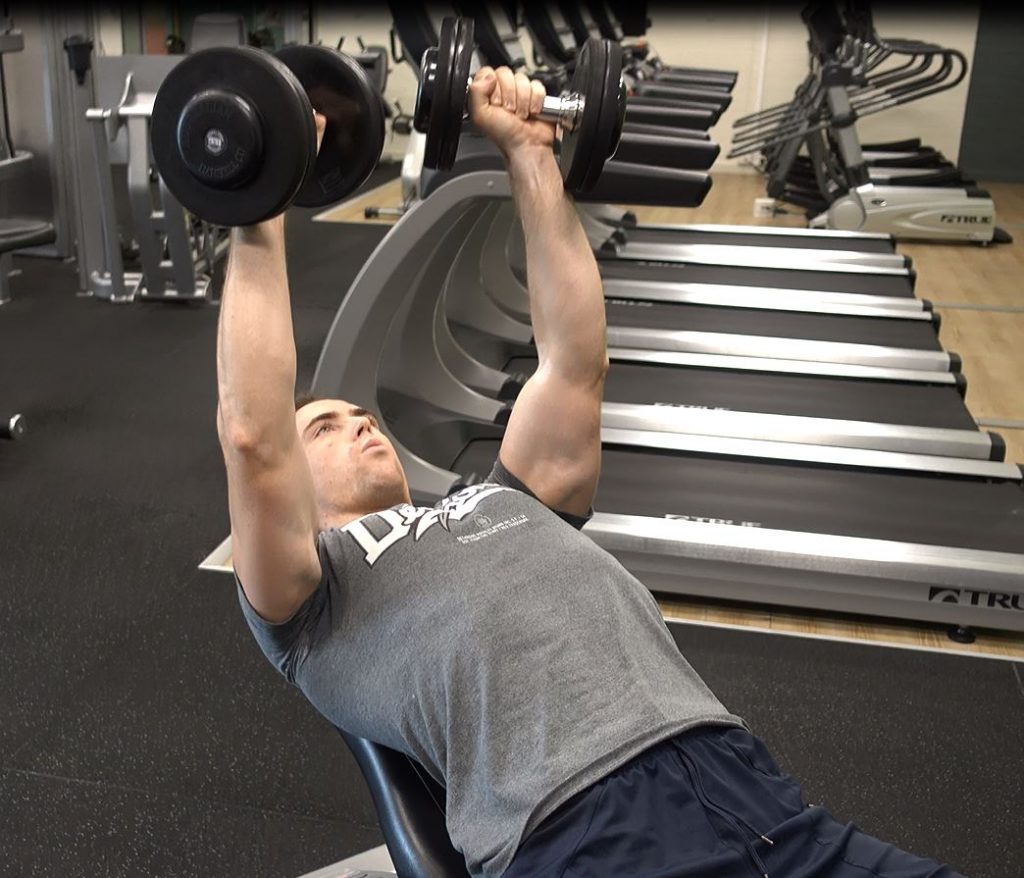A big, burly chest is the prize for work well done in the gym. The path to building chesticles is no more complicated than for any other body part. You just need to know a bit about anatomy and what exercises to infuse into your program.
Enter incline dumbbell presses and flat dumbbell presses. If you need some schooling, read on to learn what the difference is and how you can use these exercises to your advantage.
Body position

As the name implies, incline presses are performed with your body in an inclined position. Depending on what type of bench you use, your body can be placed anywhere from 45 to 60 degrees. The steeper the incline, the more emphasis will shift to your shoulders. Just be aware of that.
In a gym, you won’t have to look hard to find an adjustable bench, so you can pick and choose your angle. Occasionally you’ll find a fixed bench, but they’re not as popular as the adjustable ones.
Flat dumbbell presses are performed lying face-up on your back with your body parallel to the floor.
Target area
Aside from the position of your body, the biggest difference between incline and flat dumbbell presses is the area of your chest that they target. Both hit the pectorals, but they have a different emphasis.

Incline presses target the upper part of the pecs while flat presses place more emphasis on the center portion. And, just for the record, decline presses target the lower part of your chest.
Game plan
Since you want to have a big, robust chest, you are best advised to do both these exercises in your workouts.
By incorporating both, you’ll build a bigger, fuller, broader chest and gain the attention of all onlookers.
Order of importance
Here’s a fact that you need to take into consideration. Due to the angle of your body, incline presses are considerably harder to do then flat presses. This means you’ll likely not be able to lift as much weight in an inclined position.
Therefore, I suggest you go with the incline dumbbell pressfirst in your workout. If you do flat presses first, you might gas out and not have enough energy to maximize your weights and lift with good form.
One last thing

You can perform flies from both an incline and a flat position. Unlike presses, in flies your arms stay in a fixed position without bending your elbows. You can keep your elbows slightly bent throughout, but should not be bending repetitively.
Incline flies will work the upper, inner part of your chest and flat bench flies will work the middle, inner part. Doing flies will give your chest that sharp, serrated look. Always reserve these for the last part of your chest training.
Conclusion
As you can see, there is value in both incline and flat dumbbell presses. If you want symmetry and adequate gains in size and strength, you’re best served by factoring them both into your program. Until later – go hit the weights and make sure to use proper form!
